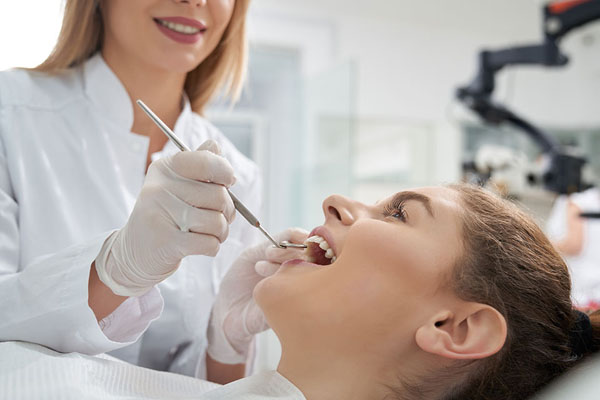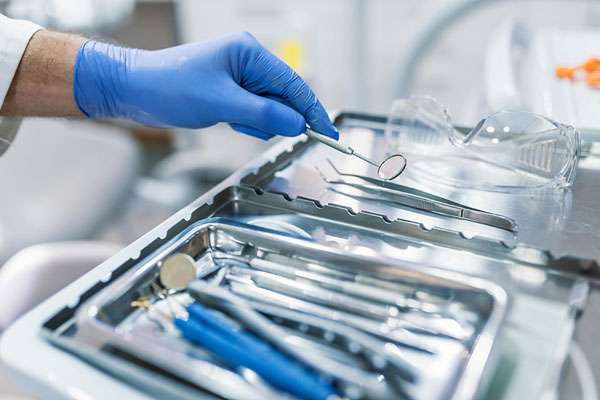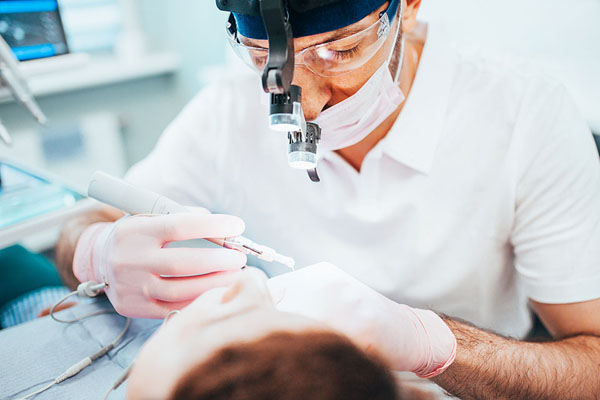Dental Tools and Techniques Used During Teeth Cleanings in Knoxville, TN
How Dentists Clean Your Teeth
Routine dental cleanings are the cornerstone of maintaining oral health, preventing cavities, and keepinggum diseaseat bay. They also contribute to fresh breath and a dazzling smile. At our Knoxville, TN, dental office, we utilize the latest dental cleaning tools and techniquesto ensure your teeth are not only clean but also protected from future oral health issues.
Whether you’re in West Knoxville, Marble City, or Amherst, our Knoxville dentist and team are here to help. Call us at(865) 687-8670to book your dental cleaning appointment today!
What Happens During a Dental Cleaning?
Dental cleanings go beyond brushing and flossing by targeting plaque and tartar that regular oral hygiene can miss. Using state-of-the-art instruments and methods, our Knoxville team ensures every cleaning is efficient, thorough, and tailored to your specific needs.
Dental Cleaning Techniques
1. Scaling and Root Planing
Scaling and root planingare ideal for patients with early gum disease; this two-step approach removes plaque and tartar both above and below the gum line. Scaling eliminates buildup, while root planing smooths tooth roots to discourage bacterial growth.
2. Ultrasonic Scaling
Ultrasonic scalersuse high-frequency vibrations to break apart stubborn tartar deposits. This method is faster, more comfortable, and highly effective in deep-cleaning, hard-to-reach areas.
3. Air Polishing
Air polishingis a gentle yet powerful technique that uses a mix of air, water, and fine powder to clean teeth surfaces. It’s great for removing stains from coffee, tea, or smoking, leaving teeth smooth and bright.
Essential Dental Cleaning Tools
Our Knoxville dental professionals rely on various modern instruments to provide a superior clean.
1. Dental Explorer
A dental exploreris commonly used during oral exams to detect tooth decay, gum disease, and other oral health problems. It’s a thin, sharp, pointed tool with a flexible, angled tip that allows the dentist or dental hygienist to reach and probe areas that are difficult to see or access.
2. Dental Mirrors
Small, angled mirrorsallow us to view hidden areas in your mouth, ensuring no spot is overlooked. It helps the dentist or dental hygienist to get a better view of the teeth and gums, detect any problems or abnormalities, and make an accurate diagnosis.
3. Dental Scalers (Manual and Ultrasonic)
Manual scalersscrape away hardened tartar; it has a hooked end that allows it to reach under the gumline to remove debris that brushing and flossing can’t remove.
Ultrasonic onesuse high-frequency vibrations to remove the plaque and tartar buildup, adding speed and comfort to the cleaning process.
4. Polishing Tools
Polishingsmooths and shines the teeth’s surfaces after scaling and root planing. A polishing tool uses a rotary brush to smooth tooth surfaces, making it harder for plaque to reattach.
5. Dental Floss
Dental flossis a thin, waxed string used to remove plaque and food particles from between the teeth. Flossing removes any plaque and food particles that have accumulated between the teeth, preventing tooth decay and gum disease.
6. Curettes
Curretesare precise, curved tools used below the gumline to maintain healthy gums and prevent periodontal disease. Using a curette during a dental cleaning can remove any buildup that one can’t reach through regular brushing and flossing.
7. Water Syringe
A water syringeis used to rinse the mouth during and after the cleaning procedure. This dental syringe can help remove any remaining debris from the mouth and leave the teeth feeling clean and fresh.
8. Saliva Ejectors
Asuction device, also known as adental suction orsaliva ejector,keeps your mouth dry during cleaning for better visibility and comfort. It’s a small, handheld device consisting of a soft, flexible tube with a suction tip at the end.
Modern Additions to Your Dental Cleaning Experience
Depending on the dental practices, some dentists may have some of these modern additions:
- Dental Lasers: In cases of advanced gum disease, lasers can sterilize pockets and remove infected tissue with minimal discomfort.
- Intraoral Cameras: These tiny cameras allow you to see what your dentist sees, fostering better understanding and communication.
- Digital X-Rays: Digital imaging during your cleaning helps detect hidden issues like cavities, infections, or bone loss early.
Why Choose Us for Your Dental Cleaning in Knoxville?
We don’t just clean your teeth; we prioritize your overall comfort and oral health. Our Knoxville dental office employs cutting-edge technology and a compassionate approach to ensure every patient has a positive experience.
Frequently Asked Questions
Yes! Ultrasonic scalers are designed to minimize discomfort while effectively removing plaque. Let your hygienist know if you have sensitive teeth, and they’ll adjust the settings for your comfort.
Dentists recommend a professional cleaning every six months, though patients with gum disease or other conditions may need more frequent visits.
Yes, air polishers are gentle enough for most patients. However, those with certain conditions, like respiratory issues, should consult their dentist.
Ready to Schedule Your Dental Cleaning?
At our Knoxville dental practice, we’re passionate about helping you maintain a healthy, beautiful smile. Whether you need a routine cleaning or advanced gum therapy, our experienced team has the tools and techniques to meet your needs.
Call us today at (865) 687-8670 to book your appointment. We proudly serve patients from West Knoxville, Marble City, Amherst, and beyond!


